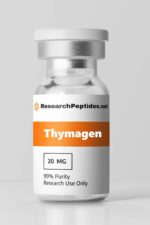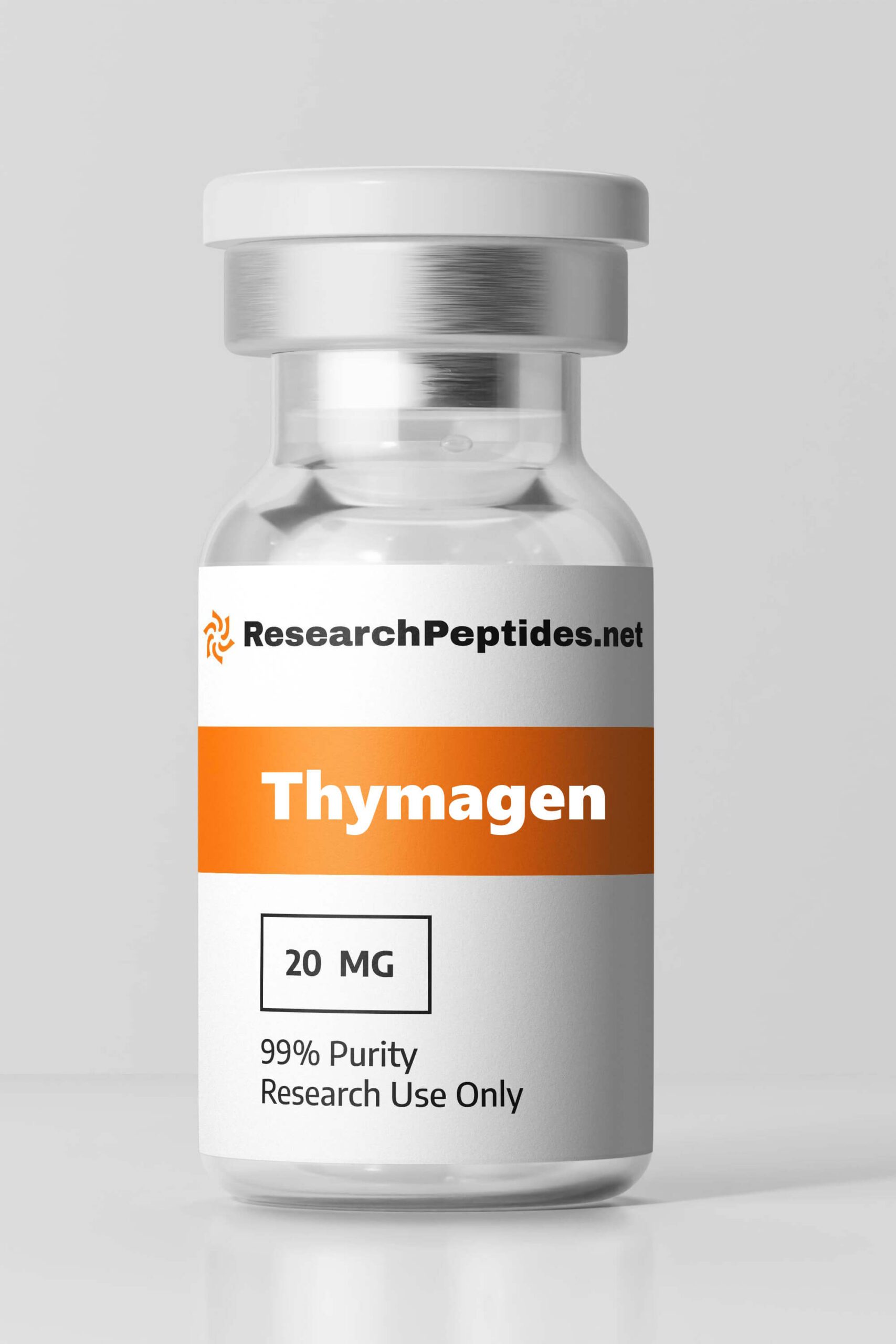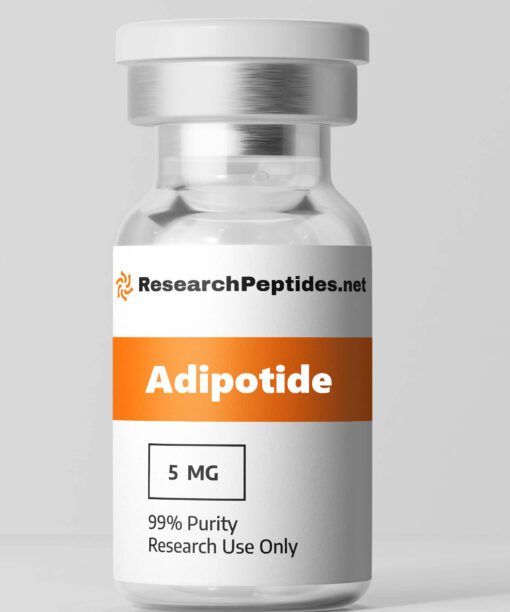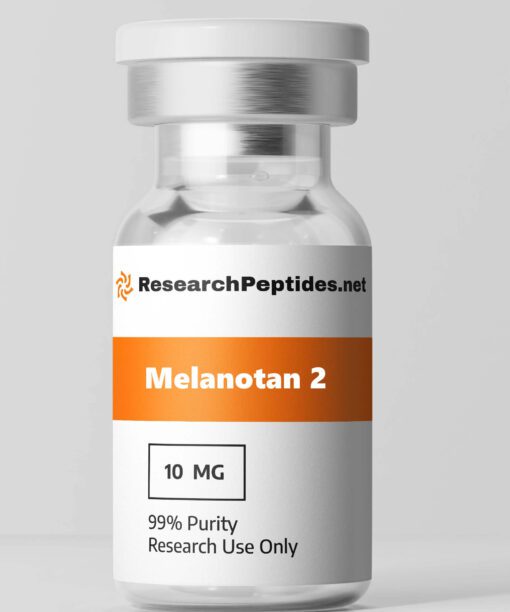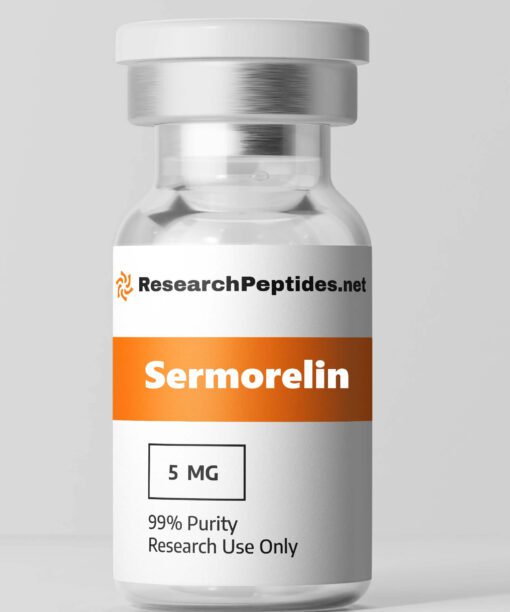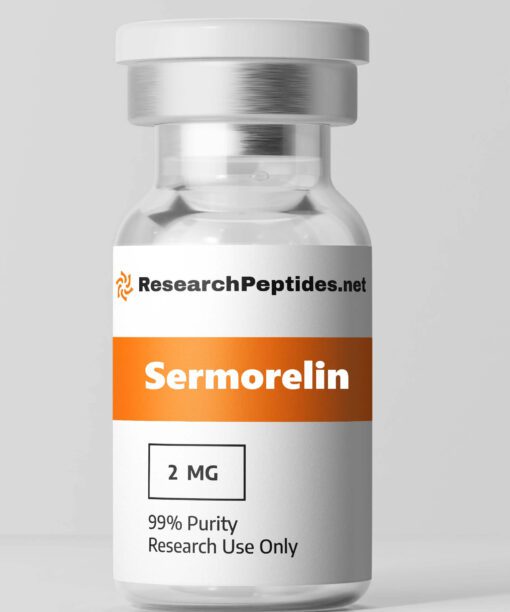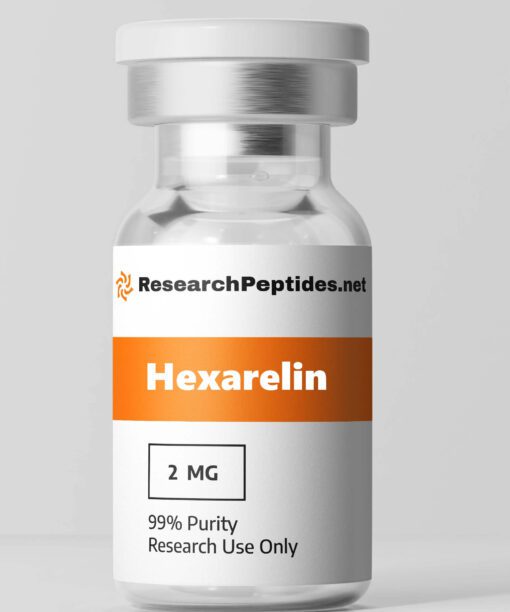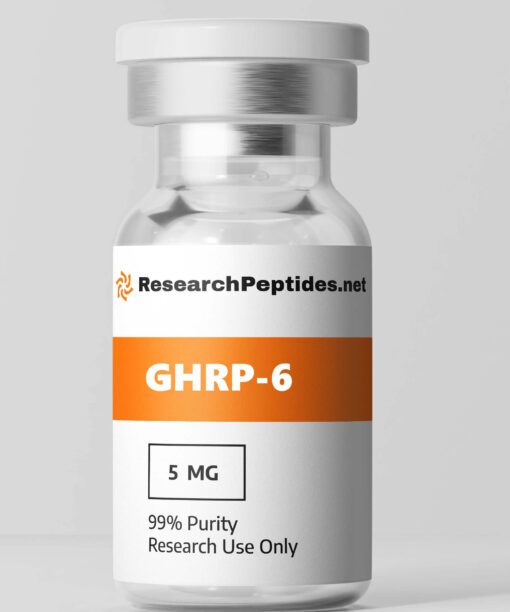Thymagen: Unveiling the Potential of a Cutting-Edge Immunomodulatory Agent for Enhanced Immune Response
Introducing Thymagen: The Science-Backed Solution for Optimal Immune Health. Extensive research has demonstrated the remarkable benefits of Thymagen, a groundbreaking product designed to enhance and support your immune system. With its proven effectiveness in numerous studies, Thymagen is your key to unlocking a stronger, more resilient immune system. Experience the power of science with Thymagen today!
What is Thymagen?
Thymagen is a research peptide that has gained attention for its potential immunomodulatory properties. It is derived from the thymus gland, which plays a crucial role in the development and maturation of immune cells. Thymagen is composed of a chain of amino acids and acts as an agonist to specific receptors involved in immune regulation.
Thymagen has been extensively studied in non-human research models to understand its effects on the immune system. It has shown promising results in modulating immune responses, reducing inflammation, and promoting tissue regeneration. The peptide’s ability to interact with immune system components makes it a valuable tool for investigating various aspects of immune function and related disorders.
Studies have also explored the therapeutic potential of Thymagen in conditions such as autoimmune diseases, wound healing, and age-related decline in immune function. By understanding how Thymagen affects these processes at a cellular level, researchers can gain insights into potential therapeutic strategies for human diseases.
Chemical Composition and Properties
Thymagen is a synthetic peptide composed of 28 amino acids. Its chemical structure allows it to bind to specific receptors on immune cells, triggering signaling pathways that regulate immune responses. The peptide has been modified to enhance its stability and bioavailability, ensuring optimal activity in research settings.
Thymagen exhibits high specificity towards certain receptors involved in T-cell activation and differentiation. This selectivity allows for targeted modulation of immune responses without causing widespread systemic effects. Additionally, Thymagen has shown excellent stability under various storage conditions, making it suitable for long-term use in research studies.
Research Applications
Thymagen has been widely utilized in non-human research studies due to its potential applications across multiple disciplines. Some key areas where Thymagen has been investigated include:
– Autoimmune diseases: Researchers have examined the effects of Thymagen on autoimmune diseases such as rheumatoid arthritis, multiple sclerosis, and systemic lupus erythematosus. Thymagen’s ability to modulate immune responses may offer potential therapeutic strategies for these conditions.
– Wound healing: Thymagen has shown promise in promoting tissue regeneration and wound healing. Studies have explored its effects on accelerating the healing process, reducing scar formation, and enhancing tissue repair mechanisms.
– Age-related decline in immune function: Aging is associated with a decline in immune function, leading to increased susceptibility to infections and decreased vaccine efficacy. Thymagen has been investigated as a potential intervention to enhance immune responses in the elderly population.
Overall, Thymagen offers a versatile tool for researchers studying various aspects of immunology and related fields. Its unique properties make it an attractive candidate for exploring novel therapeutic approaches and understanding the underlying mechanisms of immune regulation.
How Does Thymagen Work?
Thymagen is a peptide-based supplement that works by stimulating the production and activity of thymus gland cells in the body. The thymus gland plays a crucial role in the development and maturation of T-cells, which are essential for a healthy immune system. Thymagen contains bioactive peptides that mimic the effects of naturally occurring thymic factors, promoting the growth and function of T-cells.
When taken orally or administered through injections, Thymagen peptides are absorbed into the bloodstream and transported to the thymus gland. Once there, they bind to specific receptors on thymus cells, triggering a cascade of cellular events. This leads to increased production and maturation of T-cells, enhancing immune function.
Additionally, Thymagen has been shown to have anti-inflammatory properties. It can modulate cytokine production and reduce inflammation in various tissues. This can be beneficial for individuals with autoimmune conditions or chronic inflammatory diseases.
Overall, Thymagen works by boosting the immune system’s ability to fight off infections and maintain optimal health. By supporting thymus gland function and promoting T-cell development, it helps strengthen the body’s natural defense mechanisms.
Thymagen Benefits
Thymagen offers several benefits for individuals looking to improve their immune system function and overall health. Some key benefits include:
1. Enhanced Immune Response: Thymagen stimulates the production and activity of T-cells, which are vital for a strong immune response against pathogens such as bacteria, viruses, and fungi.
2. Improved Defense Against Infections: By boosting immune function, Thymagen can help reduce the risk of infections and support faster recovery from illnesses.
3. Anti-Aging Effects: The decline in thymus gland activity is associated with aging. Thymagen can help rejuvenate thymus cells and potentially slow down the aging process.
4. Reduced Inflammation: Thymagen’s anti-inflammatory properties can help alleviate symptoms of chronic inflammatory conditions, such as arthritis or inflammatory bowel disease.
5. Potential Cancer Prevention: T-cells play a crucial role in recognizing and eliminating cancer cells. Thymagen’s ability to enhance T-cell function may contribute to cancer prevention.
6. Improved Overall Health: A strong immune system is essential for overall health and well-being. By supporting immune function, Thymagen can help individuals maintain optimal health and vitality.
It is important to note that individual results may vary, and it is always recommended to consult with a healthcare professional before starting any new supplement regimen.
Thymagen Side Effects
Thymagen is generally considered safe when used as directed. However, like any supplement or medication, it may have potential side effects in some individuals. Commonly reported side effects of Thymagen include:
1. Mild Injection Site Reactions: If administered through injections, some individuals may experience mild redness, swelling, or discomfort at the injection site. These reactions are usually temporary and resolve on their own.
2. Allergic Reactions: Although rare, some individuals may be allergic to specific components of Thymagen. Signs of an allergic reaction may include rash, itching, swelling, dizziness, or difficulty breathing. If any allergic symptoms occur, immediate medical attention should be sought.
3. Upset Stomach: Some individuals may experience gastrointestinal discomfort such as nausea or diarrhea when taking Thymagen orally.
These symptoms are typically mild and transient. It is important to follow the recommended dosage guidelines and consult with a healthcare professional if you have any pre-existing medical conditions or are taking other medications that could interact with Thymagen.
Advantages of Thymagen
Thymagen offers several advantages over other immune-boosting supplements or medications. Some key advantages include:
1. Targeted Immune Support: Thymagen specifically targets the thymus gland and T-cell development, providing a more focused approach to immune system support.
2. Natural and Safe: Thymagen contains bioactive peptides that mimic the effects of naturally occurring thymic factors. It is generally well-tolerated and has a low risk of side effects when used as directed.
3. Versatile Administration Options: Thymagen can be taken orally or administered through injections, allowing individuals to choose the most convenient method for their needs.
4. Potential Long-Term Benefits: By supporting thymus gland function and T-cell development, Thymagen may have long-term benefits for immune health and overall well-being.
5. Complementary Therapy: Thymagen can be used alongside other immune-boosting strategies or treatments to enhance their effectiveness.
It is important to note that while Thymagen offers advantages in immune support, it should not replace a healthy lifestyle, proper nutrition, regular exercise, and other essential measures for maintaining optimal health.
Thymagen Research Topics
Thymagen has been the subject of various research studies exploring its potential benefits and applications in different areas of health. Some current research topics related to Thymagen include:
1. Immune System Modulation: Researchers are investigating how Thymagen affects different components of the immune system, such as cytokine production, T-cell activation, and immune cell communication.
2. Autoimmune Diseases: Studies are being conducted to evaluate the potential use of Thymagen in managing autoimmune conditions like rheumatoid arthritis, multiple sclerosis, or lupus by modulating immune responses and reducing inflammation.
3. Infectious Diseases: Researchers are exploring whether Thymagen can enhance the body’s defense against specific infections by boosting immune function or improving vaccine responses.
4. Aging-related Immune Decline: Studies are investigating the effects of Thymagen on thymus gland function and T-cell development in older adults to determine its potential for reversing or slowing down age-related immune decline.
5. Cancer Immunotherapy: Thymagen’s ability to enhance T-cell function is being studied in the context of cancer immunotherapy, aiming to improve the body’s natural ability to recognize and eliminate cancer cells.
These research topics aim to further understand Thymagen’s mechanisms of action, identify potential therapeutic applications, and optimize its use for various health conditions.
Future Research Directions for Thymagen
As the scientific community continues to explore the potential benefits and applications of Thymagen, several future research directions have been proposed. These include:
1. Combination Therapies: Investigating the synergistic effects of combining Thymagen with other immune-boosting agents or therapies to enhance overall immune response and improve treatment outcomes.
2. Long-Term Safety and Efficacy Studies: Conduct long-term studies to evaluate the safety profile and efficacy of Thymagen over extended periods, particularly in specific patient populations or individuals with chronic health conditions.
3. Mechanistic Studies: Further elucidating the molecular mechanisms by which Thymagen exerts its effects on thymus gland cells, T-cell development, and immune system modulation.
4. Clinical Trials in Specific Conditions: Conducting large-scale clinical trials to assess the effectiveness of Thymagen in specific health conditions such as autoimmune diseases, infectious diseases, or cancer immunotherapy.
5. Optimal Dosage and Administration Regimens: Determining the most effective dosage levels and administration regimens for different populations or health conditions to maximize Thymagen’s benefits while minimizing side effects.
Future research directions for Thymagen aim to provide a deeper understanding of its therapeutic potential, optimize its use in clinical settings, and expand its applications across various areas of healthcare.
Thymagen Before and After in Research
Thymagen has been studied in various research settings to assess its effects before and after administration. These studies typically involve measuring specific immune markers, evaluating clinical outcomes, or assessing changes in thymus gland function.
In a study investigating Thymagen’s effects on immune function in elderly individuals, participants were assessed before and after a course of Thymagen treatment. The results showed a significant increase in T-cell counts and improved immune response markers after the treatment period. This suggests that Thymagen can effectively enhance immune function in older adults.
Another study focused on Thymagen’s potential benefits for individuals with rheumatoid arthritis. Participants were evaluated before and after receiving Thymagen injections over a specified period. The results demonstrated a reduction in disease activity scores, decreased inflammation markers, and improved joint symptoms compared to baseline measurements.
This indicates that Thymagen may have positive effects on autoimmune conditions like rheumatoid arthritis. These “before and after” studies provide valuable insights into the potential benefits of Thymagen and help guide further research and clinical applications.
Thymagen Cycle for Research
When conducting research involving Thymagen, it is important to establish appropriate cycles for administration to ensure an accurate assessment of its effects. The duration of a Thymagen cycle can vary depending on the specific research objectives and protocols.
Typically, a Thymagen cycle may last between 4 to 12 weeks. During this period, participants receive regular doses of Thymagen according to the recommended dosage guidelines. Researchers closely monitor participants’ immune markers, clinical outcomes, or other relevant parameters throughout the cycle.
It is essential to carefully design the timing and frequency of Thymagen administration within the cycle to optimize its effects while minimizing potential side effects or interference with other treatments or interventions being studied concurrently.
Researchers should consult existing literature, and expert recommendations, and consider the specific research objectives when determining the appropriate Thymagen cycle for their studies.
Best Thymagen Results in Research
To achieve the best results when using Thymagen in research, several factors should be considered:
1. Proper Dosage: Following the recommended dosage guidelines for Thymagen is crucial to ensure optimal results. It is important to administer the correct amount of Thymagen based on body weight, age, and specific research objectives.
2. Consistency: Maintaining a consistent administration schedule throughout the research period is essential for an accurate assessment of Thymagen’s effects. Regular dosing at specified intervals helps maintain stable peptide levels in the body.
3. Monitoring Immune Markers: Regularly monitoring immune markers or relevant parameters allows researchers to track changes and evaluate the effectiveness of Thymagen. This can include measuring T-cell counts, cytokine levels, inflammation markers, or clinical outcomes.
4. Controlled Environment: Conducting research in a controlled environment helps minimize confounding factors that could influence results. This includes maintaining standardized conditions such as diet, exercise, and other lifestyle factors that may impact immune function.
5. Collaboration with Experts: Collaborating with experts in immunology or related fields can provide valuable insights and guidance throughout the research process. Their expertise can help optimize study design, data analysis, and interpretation of results.
By considering these factors and implementing rigorous research protocols, researchers can obtain reliable and meaningful results when studying Thymagen’s effects.
Where to Buy Thymagen?
Thymagen can be purchased from various sources including online retailers specializing in supplements or peptide-based products. When looking to buy Thymagen, it is important to ensure that you are purchasing from a reputable and trustworthy source. Here are some considerations when buying Thymagen:
1. Quality Assurance: Look for suppliers who adhere to strict quality control standards and have certifications or third-party testing to ensure the purity and potency of their products.
2. Customer Reviews: Read customer reviews and testimonials to gauge the reputation and reliability of the supplier. Positive feedback from other customers can provide confidence in the quality of the product.
3. Ingredients and Formulation: Check the product label or description to verify that it contains the specific Thymagen peptides or ingredients you are looking for. Ensure that there are no unnecessary additives or fillers.
4. Price Comparison: Compare prices from different suppliers to ensure you are getting a fair price for the product. However, be cautious of extremely low prices as they may indicate subpar quality or counterfeit products.
5. Shipping and Return Policies: Review the supplier’s shipping policies, including international shipping options if applicable, as well as their return policy in case you encounter any issues with your purchase.
It is advisable to consult with a healthcare professional before purchasing Thymagen, especially if you have any underlying medical conditions or are taking other medications.
Buy your Thymagen now here from ResearchPeptides.net
Thymagen for Sale
Thymagen is available for sale through various online retailers specializing in supplements or peptide-based products. These retailers typically offer convenient ordering options and worldwide shipping. When searching for Thymagen for sale, consider the following:
1. Reputable Retailers: Purchase from reputable retailers known for their quality products and reliable service. Look for established companies with positive customer reviews and a track record of delivering authentic products.
2. Product Authenticity: Ensure that the Thymagen being sold is genuine and not counterfeit. Check if the retailer provides information on product sourcing, manufacturing processes, and quality control measures.
3. Pricing Transparency: Transparent pricing is important when buying Thymagen. Compare prices across different retailers to ensure you are getting a fair deal without compromising on quality.
4. Shipping Options: Consider retailers that offer flexible shipping options, including international delivery if needed. Check estimated delivery times and any associated costs.
5. Customer Support: Look for retailers that provide responsive customer support to address any inquiries or concerns you may have before, during, or after your purchase.
It is recommended to consult with a healthcare professional before purchasing Thymagen to ensure it is suitable for your specific needs and health conditions.
Overall, the research on “Thymagen” has demonstrated promising results, highlighting its potential as a valuable therapeutic option. With its ability to enhance immune function and improve overall well-being, “Thymagen” holds great promise for individuals seeking effective immune support.
Frequently Asked Questions About Thymagen Peptides April 2024
What is Thymagen used for?
Thymagen is a synthetic peptide that has been studied for its potential immunomodulatory properties. It is believed to play a role in regulating immune responses and has been researched for various therapeutic applications.
Is Thymagen a naturally occurring peptide?
No, Thymagen is a synthetic peptide. However, it is designed to mimic the effects of naturally occurring peptides in the body.
How is Thymagen administered?
Thymagen is typically administered through injections. The dosage and frequency depend on the specific condition being treated and the recommendations of a healthcare professional.
Are there any side effects associated with Thymagen?
As with any medication or therapeutic agent, Thymagen may have potential side effects. It’s essential to consult with a healthcare professional to understand the potential risks and benefits.
Has Thymagen been approved by regulatory agencies?
The approval status of Thymagen varies by country and its intended use. It’s crucial to check with local regulatory agencies or healthcare professionals for the most up-to-date information.
What are the primary areas of research for Thymagen?
Thymagen has been researched for its potential role in immunomodulation, wound healing, and other therapeutic applications. Studies have explored its effects on various conditions, including immune disorders and post-surgical recovery.
Dive into the Peptide Universe: A Resource for Researchers 2024
Discover a variety of peptide forms, including polypeptide chains, peptide amalgams, IGF-1 Proteins, Melanotan elements, and beauty peptide mixtures at our US Peptides Outlet. Our Peptides for Sale platform provides in-depth resources for those interested in peptide science. We also offer a selection of Laboratory Tools for your research needs. Our Peptides Information Repository is a great resource for expanding your understanding of peptides.
Author Info and References
Author Info
The information provided in this article was taken from studies carried out by recognized researchers, including Ph.D V. V. Lopatynska and MD Douglas S. Ross.
References
- Lopatynska, V. V. (2019). Temperature, heat shock proteins and growth regulation of the bone tissue. Hryhorii Skovoroda University Journal. https://doi.org/10.15421/022205
- Ross, D. S. (2001). Serum Thyroid-Stimulating Hormone Measurement For Assessment Of Thyroid Function And Disease. Endocrinology and Metabolism Clinics of North America. https://doi.org/10.1016/S0889-8529(05)70186-9
Thymagen Research Peptides Scientists
Share The Thymagen Product Page
Product Usage: THIS PRODUCT IS INTENDED AS A RESEARCH CHEMICAL ONLY. This designation allows the use of research chemicals strictly for in vitro testing and laboratory experimentation only. All product information available on this website is for educational purposes only. This product has not been approved by the FDA for Human Use. Bodily introduction of any kind into humans or animals is strictly forbidden by law. This product should only be handled by licensed, qualified professionals. This product is not a drug, food, or cosmetic and may not be misbranded, misused or mislabeled as a drug, food or cosmetic.
Estimated Reading Time: 17 min read

